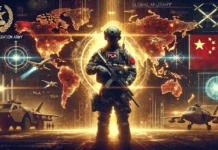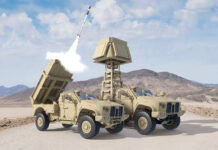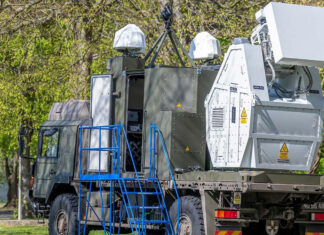Recep Tayyip Erdogan’s Justice and Development Party (AKP) has won a convincing victory in the July 2007 elections, but despite the opposition’s claims, it plans to allow only few Islamic values in future government institutions.
Mr Erdogan’s Party (AKP) won 47% of the vote, giving it a clear majority in the 550-seat parliament in Ankara. Two opposition parties passed the 10% threshold needed to guarantee seats in parliament: the secularist Republican People’s Party (CHP) polled 20%, and the right-wing Nationalist Action Party (MHP) 14%.
More than 80% of the electorate voted in what Mr Erdogan declared a big test for Turkey’s democracy – a clear warning for the generals and their political allies, whose attempt to undermine the government ended in total fiasco. But Political analysts caution that the AKP’s resounding victory could fuel tensions with Turkey’s powerful military, which considers itself the guardian of the secular system put in place 84 years ago by the country’s founder, Kemal Ataturk.
On the other hand, Erdogan’s landslide victory could embolden him as he prepares to try and nominate a presidential candidate of his choice, in the coming weeks. But he will have to mind his steps very carefully. Even among his many voters, most AKP supporters do not want a pure Shari’a-based Islamic Turkey. Thus, Erdogan will no doubt continue to mind his steps extremely, preventing “rocking the boat” introducing any drastic political measures. And he would be right to pursue this proven strategy in his newly gained term. In fact, even among his many voters, most AKP supporters do not want a pure Shari’a-based Islamic Turkey.
Indeed, after its defeat, the Turkish military and especially its General Staff, remains a respected institution in the nation even though many seem already tired of its political interference- the army having ousted no less than four Governments since 1960. It is clear that the generals headed by their charismatic chief General Yasar Buyukanit seem to have overestimated their ability to engineer their desirable outcome. But there is no question that the military still has an enormous stake in the outcome of this election, for political, ideological, and even commercial reasons and no-one in Turkey really thinks the army is about to give up its political role either.
Perhaps mindful of those tensions, Prime Minister Tayyip Erdogan struck a reconciliatory tone in his victory speech, paying homage to Ataturk and offering assurances that his party’s agenda was firmly centered on the pro-business, free-market policies that have generated unprecedented economic prosperity since it took power. It seems realistic that under Erdogan, the continuance of the traditional moderate secular Islamic orientation in Turkey will last into a foreseeable future.
In another surprising milestone, some 24 Kurdish candidates – who ran as independents to avoid having to reach the vote threshold for parties – won an quite impressive number of parliamentary seats. Their accession, the first by Kurds in more than 15 years, comes as the government is weighing an incursion into northern Iraq to fight Kurdish rebels. Up to 15 million of Turkey’s 74 million people are Kurds and these will now have to be reckoned with in any future political decision. But first the Democratic Society Party (DTP) must disassociate itself from the Kurdistan Workers’ Party (PKK) if there are to be talks or cooperation between the party and the government. Sentiments against the PKK have risen sharply earlier this year, when the terrorists restarted their violent campaign after a long period of restraint, boosting public support in Turkey for nationalist parties demanding a tougher crackdown on Kurdish separatism. It will be remembered that the PKK had launched its armed struggle in 1984, demanding an ethnic homeland in southeast Turkey. During that period, more than 30,000 people have been killed in the conflict.
Moreover, Turkey’s next government will have to decide whether to send the army into northern Iraq to crush PKK rebels based there, a move that is increasingly worrying the United States, but not only Washington alone, but the new Kurdish parliamentarians as well.
But Prime Minister Erdogan is already facing his first political power test, as Turkish lawmakers are to choose a new president within 30 days. With the opposition still stung by defeat, that could result in the same deadlock that occurred last April, when the AKP put forth Foreign Minister Abdullah Gul as its candidate and failed. At the time Erdogan hesitating to confront the Army, which had issued a stern warning over this potential nomination. (see our previous analysis: Myth and Realities of Turkey’s Hidden Islamist agenda.) Lacking the necessary numbers in Parliament, even after his landslide victory, Mr Erdogan cannot easily push through his nomination of Mr Gul, and he will need to seek the agreement of either the secular Opposition, ultra-nationalists or Kurdish MPs, which will form a solid block in the new Parliament. The latter will seek full payment for their consent and the question is whether the Islamists are ready to agree. The obvious solution would be nomination of a “neutral” figure acceptable to all.
So whatever the case may be, Turkey under the AKP is not necessarily hasting to join the Islamic Fundamentalist axis shaping up throughout the Middle East. Within its unique careful political balancing act, Turkey will no doubt contunue its pro-western alliance, perhaps with reservations, but certainly not create a drastic shift to extremism. What is lesser known to uninitiated: Mr Erdogan’s moderate Islamic AKP has staunchly adhered to its pro-western attitude, in contrast to the secular political parties, who maintain a radical anti-US and EU stance, not to mention opposing Turkey’s strategic alliance with Israel! On the other hand, the AKP under Erdogan has maintained close contact, even enhancing military and economic relations with Israel and is even trying to mediate some sort of renewed negotiations between Jerusalem and Damascus. The mutual benefits for the Ankara-Jerusalem strategic dialogue are a crucial element in maintaining the security to the two democratic nations, both prone to the extreme terrorist threat endangering their wellbeing.
In fact, Turkey is no less concerned with the fundamentalist rise sponsored by Iran’s radical president Mahmoud Ahmadinejad, which is unfolding right on Turkey’s doorstep in Syria and Lebanon and becoming critical, as Washington is already pondering its troop withdrawal from Iraq next year, with serious consequences involved to the security of Sunni moderates in the Middle East. A continued strategic dialogue with the already shaping Sunni anti-“Shi’ite Crescent” axis, led by Saudi Arabia, Jordan and Egypt is in clear interest to Ankara’s future Mid Eastern strategy. With Israel adding its unique relations with Washington behind the scene, adding considerable backing to any effort stemming the threat of Islamic fundamentalist infiltration into Turkey’s finely balanced political system – Turkey’s moderate Islamic Party under of Recep Tayyip Erdogan’s wise political leadership, could be on the right track.
















